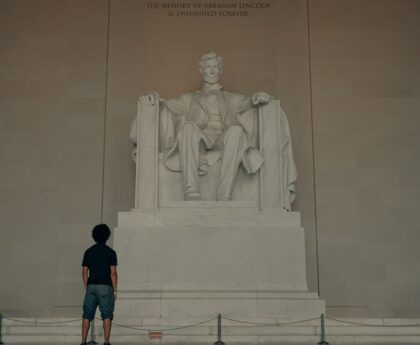Richard Madeley stuns Layla Moran with ‘racist’ question on Palestine
Bumbling TV presenter Richard Madeley has come under fire and been accused of “racism” after asking British-Palestinian MP Layla Moran whether she had heard advanced warnings about Hamas’s attacks on Israel. The incident occurred during an interview on Good Morning Britain, where Moran called for an end to the siege on Gaza and highlighted the dire humanitarian situation faced by Palestinians. Madeley’s question about Moran’s family connections in Gaza prompted widespread criticism and accusations of racism.
A Question of Racism
Throughout the interview, Madeley seemed to imply that Palestinians, including those in Gaza and the UK, were aware of the planned Israeli attacks and failed to take action. This line of questioning not only perpetuates harmful stereotypes but also disregards the complexity of the Israeli-Palestinian conflict and the suffering experienced by both sides.
SNP MP Peter Grant took to social media to express his shock at Madeley’s question, stating that it was no different from asking British Jews if they had any special warning about settlers attacking Palestinians. Journalist Ash Sarkar called Madeley’s question outright racism, highlighting the need to avoid such discriminatory lines of inquiry.
Intent versus Impact
An ITV spokesperson stated that Madeley had not intended to imply that Moran or her family had prior knowledge of the attacks. They explained that his question aimed to understand the mood and atmosphere among the civilian population of Gaza before the attacks. However, the impact of the question is what matters, and it has been widely perceived as racist and insensitive.
It is important to recognize that intent alone does not absolve one of the consequences of their words or actions. In this case, the question not only perpetuated harmful stereotypes but also failed to acknowledge the historical and political context of the Israeli-Palestinian conflict.
Editorial: The Danger of Ignorance in Media
This incident involving Richard Madeley highlights the dangerous consequences of ignorance and insensitivity when it comes to reporting on complex geopolitical conflicts. The Israeli-Palestinian conflict is a deeply divisive issue that requires nuanced understanding and careful journalism. Unfortunately, incidents like these perpetuate harmful narratives and hinder constructive dialogue.
It is important for journalists to educate themselves on the historical, cultural, and political complexities of conflicts such as this. Asking uninformed or insensitive questions only serves to reinforce stereotypes, deepen divisions, and hinder progress towards peace.
The Role of Journalism
Journalists have a responsibility to inform the public and promote understanding. This requires asking tough questions, but it also requires empathy, respect, and a commitment to seeking the truth. Sensationalism, bias, and ignorance undermine these goals and erode public trust in media.
As media consumers, it is also our responsibility to demand better. We must hold journalists accountable for their reporting and challenge biased or insensitive narratives. Public pressure can drive positive change in media practices and support more informed reporting.
Advice for Responsible Reporting
When reporting on complex conflicts or sensitive issues, journalists should consider the following:
Educate Yourself
Take the time to thoroughly understand the historical, cultural, and political context of the issue you are reporting on. This will help you ask informed questions and present a more nuanced perspective to your audience.
Avoid Stereotypes
Be mindful of the language you use and the narratives you perpetuate. Avoid reinforcing stereotypes or engaging in biased reporting that could stoke further division or incite hatred.
Show Empathy and Sensitivity
Remember that conflicts affect real people and their lives. Approach your reporting with empathy and sensitivity, recognizing the human cost of violence and injustice.
Promote Constructive Dialogue
Seek to foster understanding and promote constructive dialogue. Give voice to a diverse range of perspectives and challenge preconceived notions or biases.
Responsible reporting not only upholds the journalistic principles of accuracy, fairness, and balance but also contributes to a more informed and engaged society. It is crucial that journalists strive for excellence in their craft, particularly when covering sensitive and complex issues such as the Israeli-Palestinian conflict.

<< photo by Werner Pfennig >>
The image is for illustrative purposes only and does not depict the actual situation.
You might want to read !
- Scotland’s Hopes Dashed by Kylian Mbappe Brilliance in France 4-1 Victory
- Netherlands Pull off Major Upset, Defeating South Africa in Cricket World Cup
- Cricket Clash in the World Cup: New Zealand vs Afghanistan – Live Updates and Analysis
- Richard Madeley Apologizes for Insensitive Questioning: Fostering Respectful Discourse in Journalism
- “Early Ballon d’Or Leak: Clues to the 2023 Winners Amidst the Lionel Messi Showdown”
- “The Clash of Titans: Where to Watch the USA vs. Germany International Friendly Live Stream”
- Exploring the Unearthed Secrets of “The Burial”: A Coastal Film Delight on Amazon Prime
- Exclusive: Todd Cantwell Opens up about Transfer Talks with Bayern Munich
- “Analyzing Rio Ferdinand’s Pivotal Insight on Cristiano Ronaldo’s Impact on Manchester United”
- Barclays Online Banking and App Outage: Disrupting Customer Access and Financial Transactions
- “The Battle Royale: Uruguay and Brazil Clash in Intense World Cup Qualifier”
- Abbas Denounces Israel’s Gaza Atrocity as a “Hideous War Massacre”: Analysis of the Conflict
- Millie Bobby Brown’s Fiancé Jake Bongiovi: The Source of Support and Empowerment in Her Journey
- 600 UK Auto Jobs Hang in the Balance as Volta Trucks Faces Impending Bankruptcy
- Cricket World Cup 2023: New Zealand and Afghanistan Clash in Nail-biting Encounter – Live Updates
- San Marino’s Alleged Attempt to Injure Rasmus Hojlund: An Exploration of Unsportsmanlike Conduct
- Battle for the Ballon d’Or 2023: Erling Haaland vs Lionel Messi – Who Will Claim Football’s Prestigious Crown?
- Rangers midfielder Todd Cantwell recounts near-miss move to Premier League
- Remembering the Impact of Adult Stranger Things Fans: A Reflection by Millie Bobby Brown




